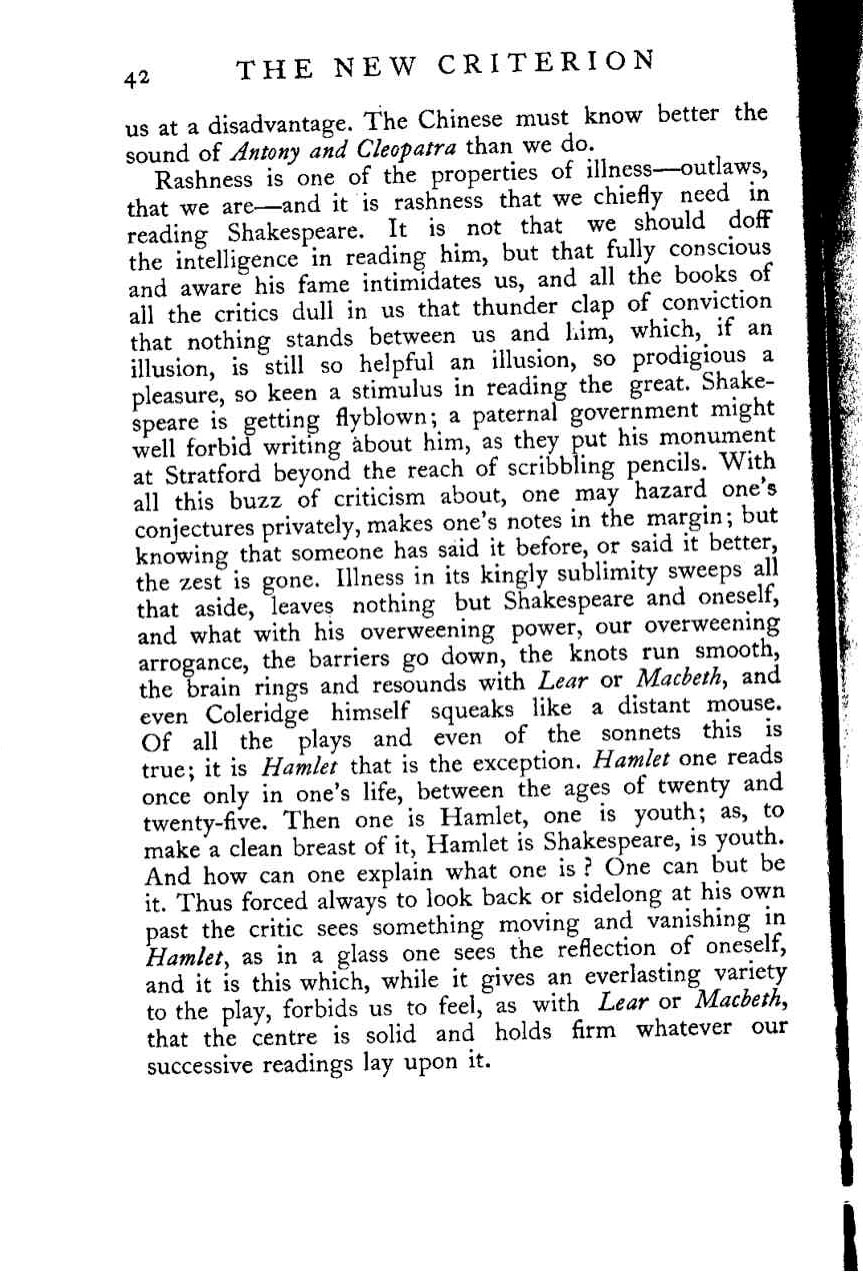
us at a disadvantage. The Chinese must know better the
sound of Antony and Cleopatra better than we do.
Rashness is one of the properties of illness—outlaws,
that we are—and it is rashness that we chiefly need in
reading Shakespeare. It is not that we should doff
the intelligence in reading him, but that fully conscious
and aware his fame intimidates us, and all the books of
all the critics dull in us that thunder clap of conviction
that nothing stands between us and him, which, if an
illusion, is still so helpful an illusion, so prodigious a
pleasure, so keen a stimulus in reading the great. Shake-
speare is getting flyblown; a paternal government might
well forbid writing about him, as they put his monument
at Stratford beyond the reach of scribbling pencils. With
all this buzz of criticism about, one may hazard one’s
knowing that someone has said it before, or said it better,
the zest is gone. Illness in its kingly sublimity sweeps all
that aside, leaves nothing but Shakespeare and oneself,
and what with his overweening power, our overweening,
arrogance, the barriers go down, the knots run smooth,
the brain rings and resounds with Lear or Macbeth, and
even Coleridge himself squeaks like a distant mouse.
Of all the plays and even of the sonnets this is
true; it is Hamlet that is the exception. Hamlet one reads
once only in one’s life, between the ages of twenty and
twenty-five. Then one is Hamlet, one is youth; as, to
make a clean breast of it, Hamlet is Shakespeare, is youth.
And how can one explain what one is? One can but be
it. Thus forced always to look back or sidelong at his own
past the critic sees something moving and vanishing in
Hamlet, as in a glass one sees the reflection of oneself,
and it is this which, while it gives an everlasting variety
to the play, forbids us to feel, as with Lear or Macbeth,
that the centre is solid and holds firm whatever our
successive readings lay upon it.






